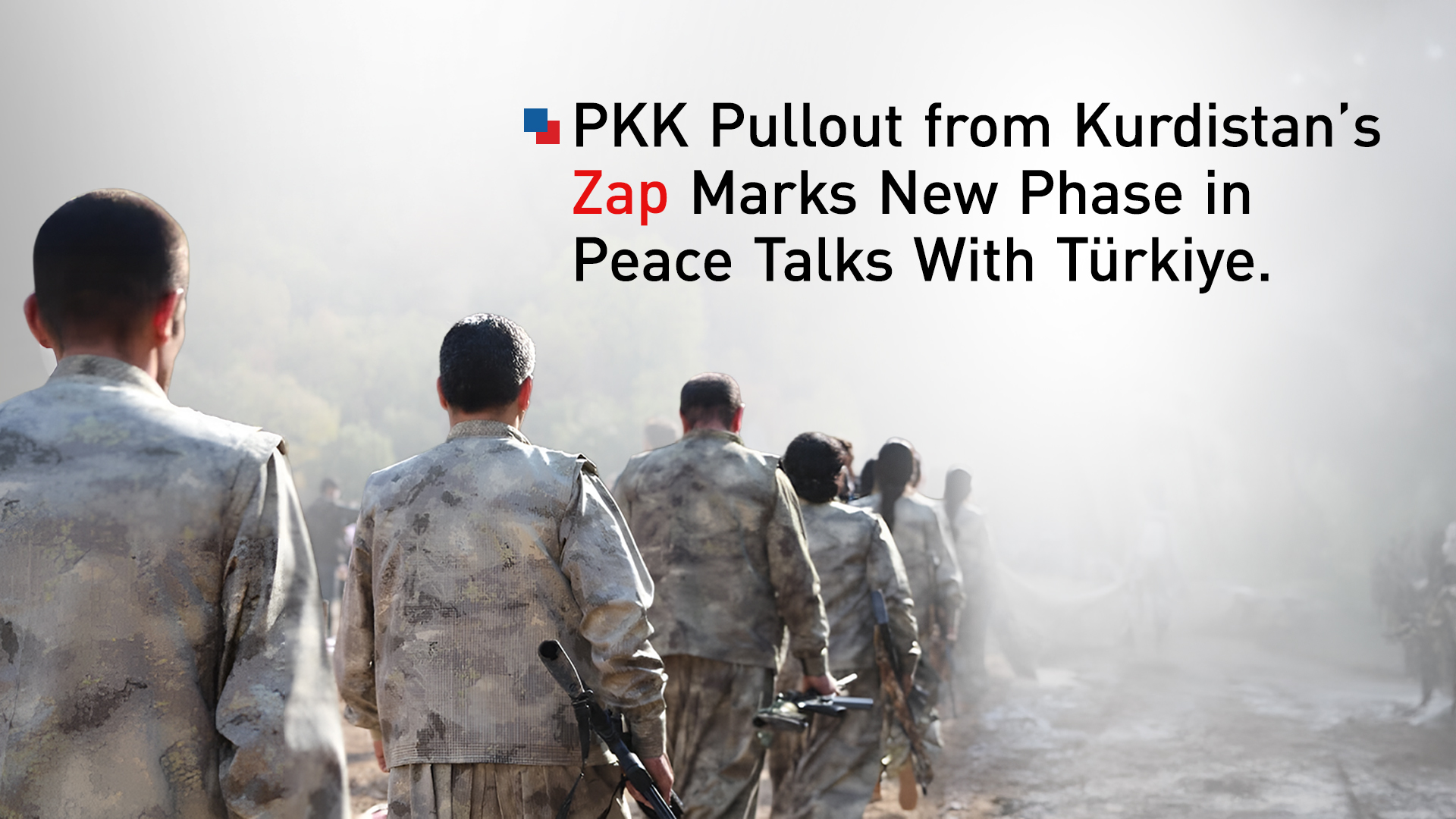PKK Withdraws from Kurdistan Region Border Areas in Historic Step Toward Peace With Türkiye
President Masoud Barzani and the Kurdistan Region play a key mediating role in advancing the peace process, building on the PKK’s unprecedented renunciation of armed struggle.

ERBIL (Kurdistan24) — The Kurdistan Workers’ Party (PKK) announced Monday that its forces had withdrawn from the strategically significant Zap region in the Kurdistan Region of Iraq, signaling a major step in the ongoing peace process with Türkiye.
The pullout comes after the PKK formally renounced armed struggle against Ankara earlier in the year, closing a violent chapter that spanned four decades and claimed an estimated 50,000 lives.
“As of the evening of November 16, our forces in the Zap region have been withdrawn,” the group said in a statement, describing the move as a “significant practical contribution” to efforts aimed at resetting ties with Türkiye.
The PKK, designated as a terrorist organization by Türkiye, the U.S., and the European Union, emphasized that the withdrawal would serve the resolution of the Kurdish issue and support broader peace and democratization in Türkiye.
After formally announcing their dissolution in May, the PKK began destroying its weapons in July and, by late October, had withdrawn all its forces from Turkish territory to northern Iraq. In response, Turkey established a cross-party parliamentary commission tasked with laying the groundwork for the peace process and preparing a legal framework to facilitate the political integration of the PKK and its fighters.
The move represents a historic shift after decades of armed conflict, during which the Zap region of the Kurdistan Region—long a PKK stronghold—was repeatedly targeted by Turkish military operations, including a major ground incursion in 2008.
Despite the challenges posed by the mountainous terrain, Zap remained a strategic and symbolic hub for the militants, who initially based their headquarters there before relocating to the Qandil Mountains.
The Zap region is sparsely populated, with only PKK fighters, Turkish troops, and seasonal shepherds present, according to a local resident interviewed by AFP. The rugged geography has historically forced the PKK to use drones to deliver food and supplies to its fighters.
The group now emphasizes a shift toward a democratic struggle aimed at defending the rights of the Kurds in Türkiye, in line with the guidance of Abdullah Öcalan, who has led the peace process from his prison cell on Imrali Island near Istanbul.
Öcalan, 76, has been serving a life sentence in solitary confinement since 1999, yet continues to exert significant influence over the organization’s strategic decisions and political orientation.
Observers highlight the pivotal role played by the Kurdistan Region, and particularly by President Masoud Barzani, in facilitating these historic developments. For years, the Kurdistan Regional Government (KRG) has served as an intermediary between the PKK and Ankara, leveraging its political weight and regional credibility to encourage dialogue and reduce hostilities.
Sources close to the negotiations note that Barzani’s personal engagement and sustained mediation efforts were instrumental in creating the conditions for succeeding in the peace process and reaching the current stage in the process.
Observers say the move has far-reaching implications for regional stability. By vacating the Zap region, the PKK reduces a primary point of contention with Türkiye, potentially paving the way for deeper political engagement and confidence-building measures between Kurdish factions and the Turkish state.
The step also reflects a recalibration of the PKK’s strategy, shifting focus from armed insurgency to political negotiation, which could strengthen the prospects for long-term peace in southeastern Türkiye and the broader Kurdish-populated regions.
President Barzani and the KRG’s mediation are likely to remain central as the process enters its next phase. Experts suggest that continued dialogue, trust-building, and practical guarantees on security and autonomy will be crucial for consolidating the gains achieved through the PKK’s withdrawal and for ensuring that the peace process endures beyond temporary ceasefires.
This historic sequence of withdrawals underscores a new spirit of pragmatism among Kurdish actors in the region, signaling both to Ankara and the international community that a negotiated and peaceful resolution to decades-long conflict is increasingly attainable.